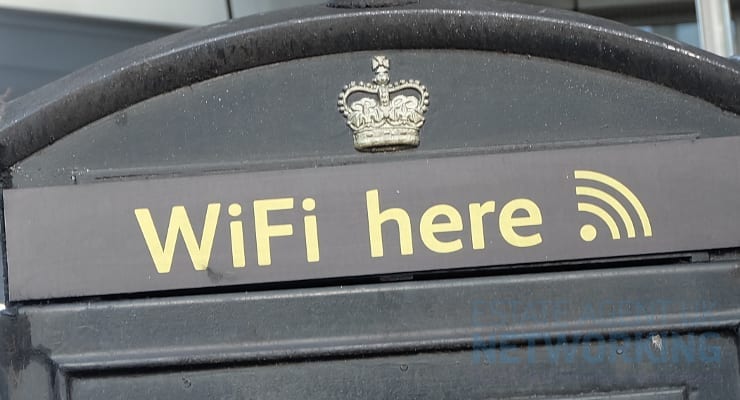Fast broadband speeds to become a right, not a privilege.
Why the government is preparing legislation that will give everyone the legal right to broadband with a minimum speed of 10 mbps
When US singer-songwriter Joni Mitchell wrote the lyrics to Big Yellow Taxi on her first trip to Hawaii in the late 1960s, the line “You don’t know what you’ve got. Till it’s gone’ wasn’t referring to her home internet connection.
But it could have been, says London estate agent Williams Lynch. It’s not until your internet connection does a disappearing act that most of us come to realise how dependent we are on fast and reliable broadband.
From streaming TV shows, sending emails to your boss and posting updates on social media to looking up who Joni Mitchell is, it’s incredible how much importance we place on one comparatively slender wire.
It’s not just the stability of our broadband connection that is getting homeowners and tenants hot under the collar. Fast broadband speeds are now top of many property hunters’ must-have lists.
In fact, such is the demand for fast and reliable broadband that the UK government is preparing new legislation that will give every homeowner in the country the legal right to fast and affordable broadband, with a minimum speed of 10 mbps (enough to download a film in a reasonable time).
To illustrate just how much importance is put on quality broadband, central London estate agent LDG reported on a recent study showing that just under 69% of would-be homebuyers would be totally discouraged from completing a deal for an otherwise ‘beautiful’ house if it didn’t measure up in the broadband stakes. According to results of the study, around 74% of homebuyers consider broadband to be ‘critically important’.
It should, therefore, come as little surprise that complaints about slow broadband speeds aren’t just rife, they’re epidemic.
In some instances, the service provider is to blame. But at the same time, experts suggest that in a quite extraordinary proportion of instances, the cause of slow broadband in domestic settings is much easier to explain and infinitely easier to address.
Ofcom says no less than 20% of all UK households may be unnecessarily stunting their own broadband performance due to nothing other than the router being placed in an inappropriate area. Primary examples cited by the communications regulator include anywhere in close proximity to baby monitors, stereo systems, cordless telephones or even household lamps – all of which produce the kind of interference that can do a number on broadband speeds.
The solution in the vast majority of instances is simple – try moving the router, or removing anything around it that could be causing interference. Ofcom states with confidence that the average UK broadband data speed today is 18.7 mbps. But this refers to the speed of the data as it enters the home, not the speed of the connection between any given devices and the router.
There are other reasons why your home’s internet speeds may be on the slow side. Using excessively long telephone cables or cables of low quality can also lead to slowdowns due to atmospheric interference, while low-grade or outdated hardware will also struggle to maintain good broadband speeds.
There’s also the chance unauthorised users could be hacking into your connection without your knowledge, which is entirely more plausible than you’d believe if your passwords are less than robust.
If all else fails, however, the best advice is to speak to your provider and organise for a professional test to be carried out – it may in fact be something totally out of your own hands.









